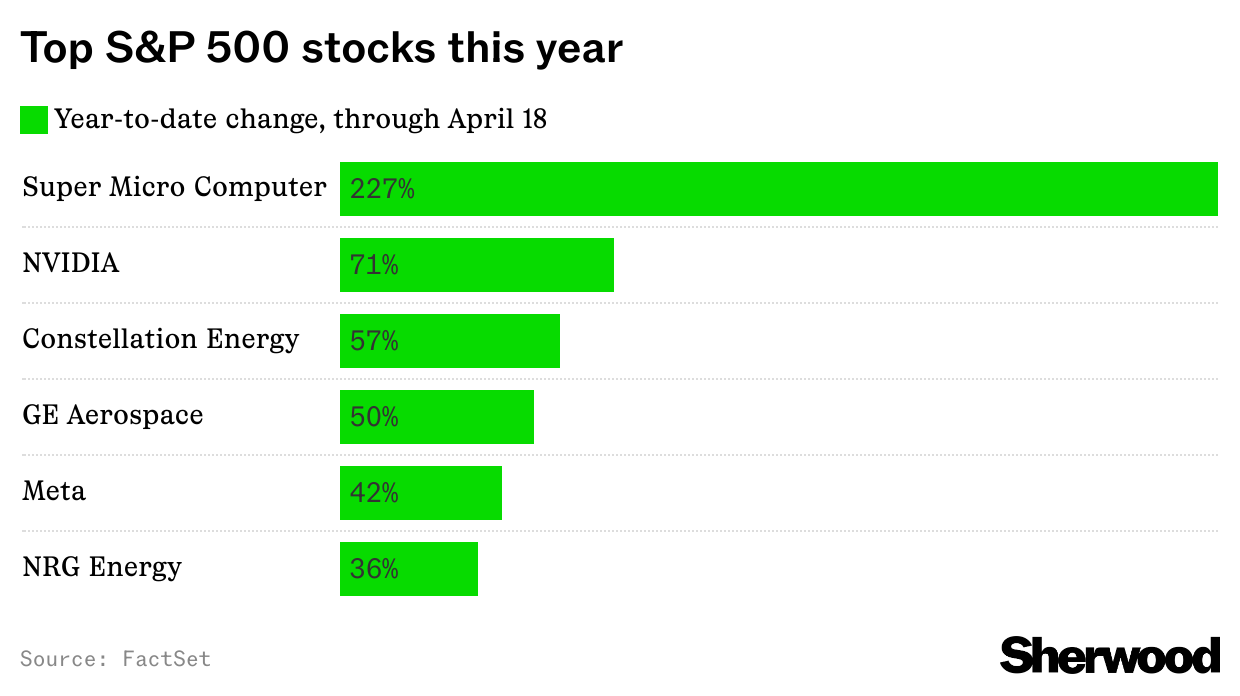Monday Jun.21, 2021
👛 How inflation is hitting your wallet
_Checking the inflation receipts like [Hirurg/E+ via GettyImages]_
Hey Snackers,
According to a Google Trends analysis, the most misspelled word during the pandemic has been "quarantine." The most common misspelling: "corn teen."
Stocks plunged off their record highs after the Fed's mid-week interest rate announcement. The Dow index had its worst week since October as investors stressed about rates and inflation. About that...
Flated
The US' booming recovery is fueling inflation: here's where you might be feeling it
Jerome has spoken... and investors didn't clap. Last week, the Fed indicated it expects to raise rates by the end of 2023, sooner than previously projected. The central bank has been pumping $$$ into the economy to keep rates low. Now, investors worry that could end sooner than expected. Higher interest rates can make bonds and savings accounts more attractive compared to riskier assets, like stocks. They also increase borrowing costs (think: credit card interest).
Should be an Uber Limo... for the price of that Uber X. The Fed can raise interest rates to slow inflation. ICYMI: things have been pretty #flated recently. Consumer prices jumped 5% in May from last year, the fastest pace since 2008. Here's where you might be feeling the bump:
- Gas: The pump anxiety is real. Gas prices are up a whopping 56% since last May.
- Cars: Consider the bus. Used car prices are up 30%, and insurance is up 17%.
- Flights: Your Miami getaway ticket is looking like a roundtrip to Europe — +24%.
- Laundry: Grab the quarters. Washing machine and dryer prices = +26%.
- Ride-hail: When the Uber/Lyft surge pricing seems endless. Transportation services = +11%.
- Food & Bev: Restaurant food (+4%), alcohol (+1.6%), cereal and baked goods (0.6%). Peanut butter has been a victim of price hikes, too.
The US' recovery has global implications... That's because the US economy accounts for nearly 25% of the world's economic output. America's booming recovery is starting to drive up inflation around the globe. That's pushed some central banks in other countries to raise interest rates early — while many developing economies are still struggling as Covid surges. Looking ahead, continued inflation in the US could slow the global recovery. Investors hope it's just a one-time increase as the economy rebounds. But some worry inflation could last longer and weigh on markets.
Zoom Out
Stories we're watching...
The e-menu stays... Last month, Yelp seated a record 4M diners in the US — up 48% from May 2019. Bookings surged past pre-pandemic levels in almost every US state, minus NY. It's not just a reopening thing: Yelp's data highlights the number of restaurants and diners that shifted online during the pandemic. This digital transformation bodes well for restaurant tech providers like Yelp, OpenTable, Square, Resy, and Toast — which is reportedly prepping to IPO.
Not so SPAC-tacular... SPACs = public companies whose sole purpose is to buy actual companies to take them public. This year, the popular IPO alternatives have already raised more than they did in all of 2020. But while the broader market is up, the top 50 SPACs have fallen 19% since February. Last week, SPAC-quisitions Lordstown Motors and DraftKings plunged on not-so-flattering allegations from a short-selling firm. TBD if the SPAC-palooza will slow. FYI: SPAC investments involve risk.
Events
Coming up this week...
Home, sweet KB Home... KB Home is the Chipotle of homebuilding — but instead of build-your-own-bowl, it's build-your-own-home. KB has thrived on the Big Housing Boom, racking up a backlog of home orders on wild demand. Near-zero interest rates have made mortgages cheaper, while home sales and prices have soared. But interest rate fears and inflation (think: soaring lumber prices) could cool the homebuilding party. KB's earnings on Wednesday could provide a glimpse into future demand.
E-Jordans... Nike reports earnings on Thursday. The Swoosh loves to market nostalgia with AF1s and Jordans, but its superpower is digital. Online orders have been surging, heading toward half of total sales as Nike focuses on direct-to-consumer. With WFH sticking, Dri-FIT leggings could keep flying off digital shelves. But ongoing supply chain issues and competition from rival Lululemon may hit Nike’s performance.
ICYMI
Last week's highlights...
- World: G7 countries want to fund global infrastructure to rival China's influence through an initiative called "Build Back Better World" (catchy).
- Autonomous: Google's Waymo self-drove its way to a $2.5B fundraise. Pro tip: you can now book its driverless robotaxis through Google Maps.
- Fashun: Chinese shopping giant Shein overtook Amazon in the app store by going ultra-fast fashion.
What else we’re Snackin’
This Week
- Monday: Second day of summer (the days get shorter from here)
- Tuesday: Earnings expected from Korn Ferry. Existing home sales report
- Wednesday: Earnings expected from KB Home, IHS Markit, and Winnebago
- Thursday: Weekly jobless claims. Earnings expected from Nike, FedEx, and Darden Restaurants
- Friday: Earnings expected from Paychex and Carmax
Authors of this Snacks own shares of: Square, Amazon, and Google
ID: 1692571
.png)

